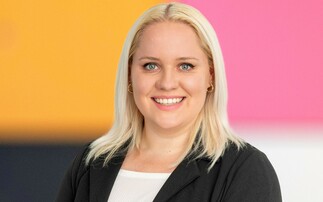In the interview, Roger discusses the general aims of the fund, the portfolio construction and how management is shared between the two lead managers.
| Launch in external player |
Well, the New Star Property Unit Trust, as the name implies, is in property,very much driven by direct property although there is an element of investmentin equities and cash, which gives a liquidity factor to the fund. Its aim isvery much towards income, so it’s income driven, but at the same time we’relooking at growth in both income and capital.
How would you differentiate between this property trust and other property fundsthat are out there?
Well, there are very few that are very similar to this. We are perhaps one oftwo or three, and the other property unit trusts tend to be focused more to propertyshares.
Roger, how would you define commercial property?
I think the first thing to say is to draw a very clear distinction between commercialproperty and residential property. We’ve seen considerable increases inthe value of residential property and that must not be confused. Commercial propertyhas not seen the same sort of movement in values. It's also underpinned by incomeand a strong income from businesses on long leases, which you don’t seein residential property. So it really is about investing in shops, offices, industryand looking at the strength of the tenants and the mix of the tenants and thatsort of thing. Get deriving the income from businesses and looking for growth.
So how have you set up this particular trust, what’s the make upof theportfolio?
The make up of the portfolio has changed recently and it will always keep changing,there’s got to be a balance between the three types of property becausethey don’t work in a straight relationship with each other, there’sthe lack of correlation there, which is useful if you're running a fund, so thebalance is always shifting and at present the weighting is moving towards offices.And that’s largely because we’re beginning to see growth come backin offices, through the last three years, they were a little bit in the doldrums,they’re following the dotcom bubble. We’ve now seen them stabilisedand rent coming back and I think it's important to take advantage of that. Atthe same time, we’ve seen a very good run with retail property over thelast few years and I'm just a little bit concerned as to whether that will keepthe same momentum going, so I'm moving a little bit down in weightings on retailproperty. And the third thing is industrial, and by industrial I don’tmean panel beaters and widget makers anymore, we don’t do that in thiscountry, it's distribution, clean processes, that sort of thing. Over the lastten years, industrial property has actually given the most consistent and bestreturns out of the three main classes of property, so I am beginning to buildup the industrial balance as well within the portfolio.
And a rough idea of the weightings currently and are they typical?
Weightings currently are about 55% in offices, retail splitting it between retailwarehousing and unit shops, which I think is important, there’s about 13%in unit shops, larger weighting in retail warehousing, about 20%, which I thinkis useful because I think that’s going to sustain growth better than perhapsunit shops moving forward. Then we’ve got 7% in industrial and about 5%in leisure. And Ihope that adds up to 100%.
But that in fact is 100% of the portion of this fund that’s invested indirect property. There is another portion. Where’s that?
We try to keep somewhere between 20% or a minimum of 20% probably up to 25% inreal estate or property, should I say, property shares and cash, which givesa liquidity, I mean obviously property is less liquid than other assets, thereforea 20-25% proportionment in equities and cash gives that liquidity to the investor.Now the equity element of the fund is managed by Stephen Whittaker, he’svery experienced, he has 20 years of running funds and he also runs the UK growthfund for New Star.
And is it just the two of you that manage this fund?
Well, we principally do, although we obviously have backup. When I moved to thefund, brought with me a colleague from, that I’ve been working with for20 years now, Ken Malone, and he plays an important part in looking after thedirect property assets of the fund, the management of those assets, so he’sa key player. And in looking at the structure of the fund, then there are probablythree levels, looking at the direct property structure of the fund, three levelsof management. I deal with the strategy of the weight and the balance of thefund in terms of the property types and the buying and the selling. Ken Malonedeals with the middle section, which I call the added value section of managinga portfolio, because property is one of the few assets that comes without managementattached, so we need to manage it so we have to look at managing and gettingthe most out of the property in terms of rent reviews, in terms of simply addingvalue and that’s Ken’s role. I mean one of the first things he’lldo when we buy a property is go and talk to the tenants, find a key man in thebuilding and say how does this building suit you, and probably no surprise thatvery often the answer is not perfectly. If it is, it's fine, that’s great,we’ve got a good investment and it’ll carry on running as a goodinvestment. If there’s something that’s not quite right, that givesus the opportunity to talk to the tenants, see if we can both meet their needsand then enhance the value. We look at three areas; use, tenure and occupancy.Three areas so we can either look at if somebody says the building is not bigenough, perhaps we can extend it. If somebody’s uncertain about the factthat the lease is coming close to the end, we can talk about renewing it or havingan earlier renewal and extension. But it's those sort of factors that are veryimportant in running a property that Ken deals with. Then there’s the thirdlevel, which I call the sort of operational level, the rent collection, the probablymore mundane dare I say part of running a property portfolio, and that we outsource,that goes to Workman & Partners, who are very experienced, deal with a lotof funds, and their job is to collect the rents, and they would deal with theday to day management aspects of the property that really are nothing to do,in my opinion, with the proper role of a fund manager.
So how do you find which properties to invest in, where do the ideas come from?
Finding the properties, a lot of it comes through contacts, and you'll probablysee from the grey hairs, I’ve been around a few years, so it is importantto have contacts. A lot of the sort of property that I deal with is probablythe sort of property that is what I would call institutional quality, so I'mprobably buying from other institutions and it's those contacts. The other thing,I’ve always worked very hard at building up a reputation for doing a dealand sticking to my word when I do a deal, and perhaps it comes as no surprisethat in property that’s not always the case, but particularly dealing withinstitutions, if you can deal with another fund manager and he can come to youand know with certainty that if you say you're going to buy it, you're goingto buy a property and you're not going to try and chip the price, you will getthe opportunities given to you in the future, and I’ve worked very hardat that and that’s where my opportunities largely come from.
Roger, what do you like about property as an asset class?
As an asset class, I think, I mean there are lots of qualities. What do I likeabout them? I think one thing, it is a tangible asset, we mustn’t forgetthat it is a tangible asset and most things that people invest in are not tangibleassets; it's there, it's bricks and mortar, it has a strong leasing structurebehind it, and I think that to me is the fundamental of property. Then probablythe other exciting bit is the buying and selling and getting the weighting rightand seeing where the market runs.
Cash and property managers can sometimes be seen as a bit of a problem, how doyou deal with large inflows?
Large inflows are actually quite helpful, and particularly as this fund has grown.Now that gives me a number of advantages. One is I'm now starting to look atlarger lot sizes, taking me into a different sphere, less competition and opportunityto buy better quality properties, so cash in that way is quite an advantage.We also have the equity element so that helps just to smooth out, and Stephenand I talk to each other quite a lot about the allocation between direct propertyand shares, and sometimes it's quite appropriate as it has been towards the endof last year, it was quite appropriate to put some money into property sharesand that’s been quite a good call, in fact, a very good call.
The word on the street is you’ve been, you have a bit of southeast bias.What would you say to that?
I think that’s quite fair. As an ex-Yorkshireman or still a Yorkshiremanbut left the county some years ago, yes, I do, and there are a number of reasonsfor that, I mean the Southeast is one of the most prosperous areas in Europe.It's also over-crowded; there’s strains on infrastructure, which meansthat there are considerable planning constraints, which creates scarcity, andscarcity is quite important I think as an investor and the commodities they areusing. The other thing is that it's my own patch as well, it's the area thatI’ve worked over the last 20-25 years, so I know it well.
So sum it up for me, why should somebody consider commercial property?
Oh, lots of reasons I think. One is that it gives a long term income, a sustainablelong term income, and if you look back over the last ten years, it's outperformedthe other asset classes of gilts and equities At the same time, we’ve seena lack of correlation, and we do see a lack of correlation with equities andbonds, so the return over the last ten years has been a pretty consistent return,whereas equities have fluctuated wildly. so we see a lack of volatility, a lackof correlation, good long term returns, high income returns, so I mean propertyyields are higher than the other two asset classes, so put those together, whata good diversifier for a portfolio. I mean the core to any portfolio is obviouslyequities and gilts, but property makes a good diversifier
And finally, Roger, what do you actually bring to the party?
What do I bring to the party? Hopefully an element of experience, certainly Ihope enthusiasm and just the fact that I enjoy managing a property fund, I enjoycommercial property.
Roger Dossett, for the moment, thank you very much.
Thank you.
Glossary
Liquidity:
Liquidity refers to assets that are easily converted to cash. Equities are easierto sell in return for cash than real property and are therefore regarded as beingmore liquid.
Correlation:
Correlation, as referred to in this interview, calculates the strength of relationshipbetween multiple numeric measurements. If two measurements follow a similar progression,they would be deemed to correlate closer than two measurements that divergedfrom one another.
The opinions expressed here are the fund manager’s at 26 January 2005 and should not be interpreted as investment advice. This interview is provided for the purpose of information only, it is important that you do not rely upon its content to make investment decisions. Please note that past performance is not necessarily a guide to future performance. The value of investments and any income from them may fall as well as rise and may also increase or decrease as a result of changes in the exchange rates between currencies. Investorsmay not get back the amount originally invested.
- If you are unsure about the content of this interview or if you have any doubts about the suitability of an investment in the New Star Property Unit Trust, please contact your financial adviser.
- Before you make an investment in the New Star Property Unit Trust, please read the New Star Key Features and Terms & Conditions Document.
- The New Star Property Unit Trust invests in a specialist sector, which may be less liquid and produce more volatile performance than an investmentin broader investment sectors. Yields are net of charges and net of tax and are not guaranteed.
- The annual management charge of the New Star Property Unit Trust is taken from capital. Capital growth will therefore be restricted.
New Star Investment Funds is the trading name of New Star Investment Funds Limited, part of the New Star Marketing Group. New Star Investment Funds is not authorised to give investment advice and only provides information on New Star’s products. Issued by New Star Investment Funds Limited. Authorised and regulated by the Financial Services Authority.











